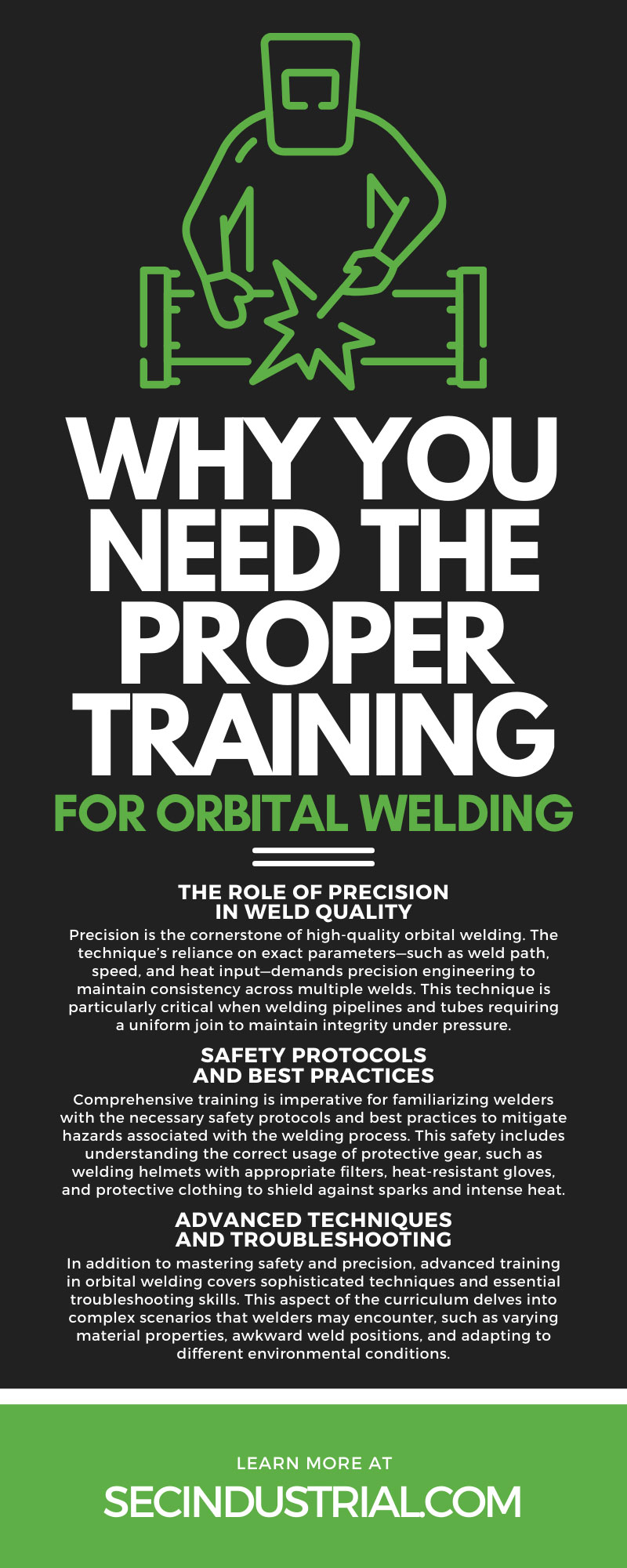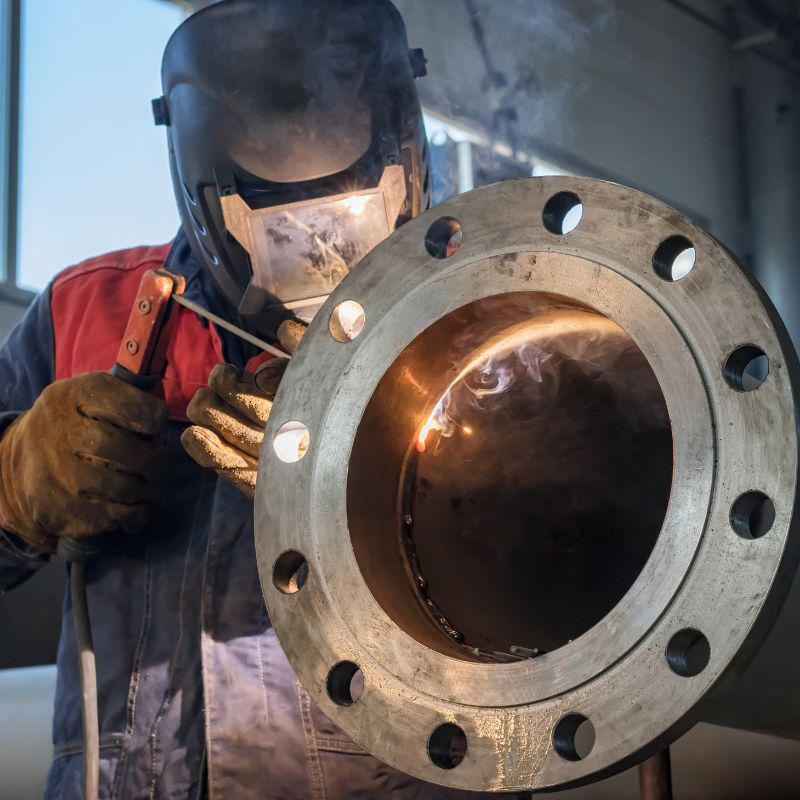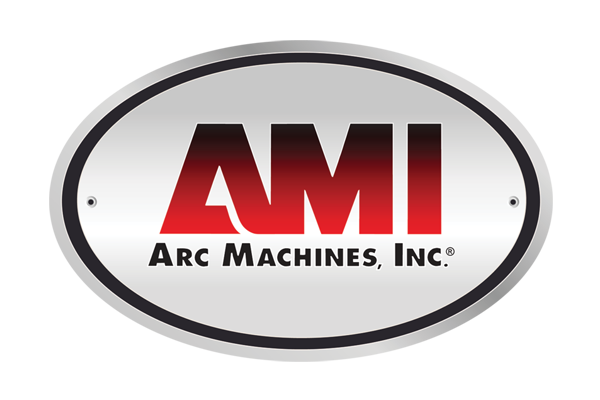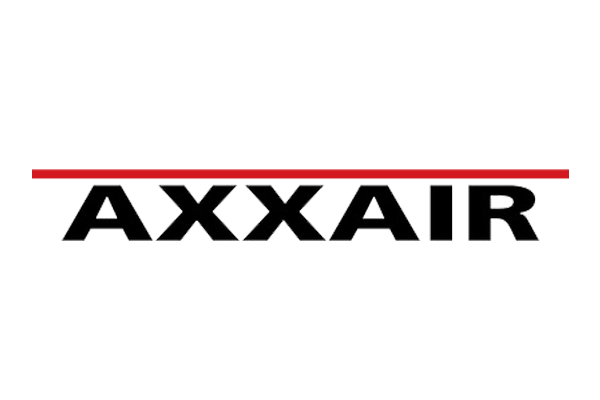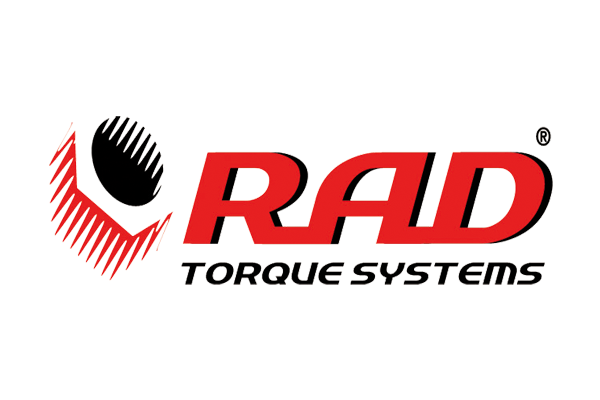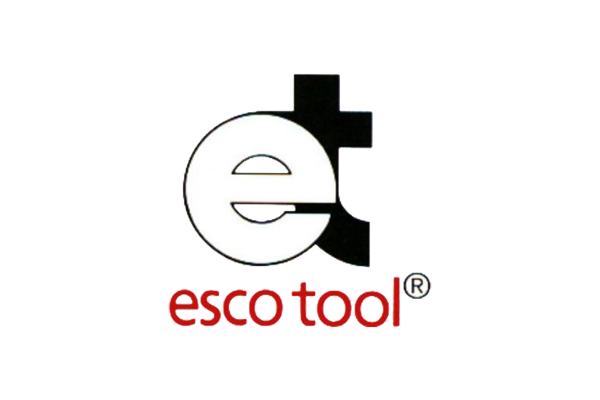Why You Need the Proper Training for Orbital Welding
Orbital welding, an intricate process that demands precision and consistency, marks a significant evolution from traditional welding techniques. It’s not just about the automation of the weld cycle; it also involves a high level of skill and understanding of the welding system, materials, and environment.
Let’s look at why you need the proper training for orbital welding and how it can benefit you in the long run.
Understanding the Fundamentals of Orbital Welding
Gaining a firm grasp of the fundamentals is crucial for anyone specializing in orbital welding. The process involves automated equipment that moves around fixed tubing or pipe, making it essential to understand the intricacies of the weld head, power supply, and controller. Training programs offer comprehensive insight into the selection of parameters such as gas type, welding speed, and temperature, all of which significantly impact the quality of the weld.
Moreover, such courses impart knowledge on interpreting complex blueprints and specifications and the proper maintenance of welding equipment. In essence, proper training ensures that an orbital welder is adept at handling the machinery and equipped to troubleshoot on the fly, thus reducing downtime and improving overall productivity and safety.
Without this foundational expertise, the precision required for successful orbital welding is unattainable, potentially leading to substandard weld quality and costly rework.
The Role of Precision in Weld Quality
Precision is the cornerstone of high-quality orbital welding. The technique’s reliance on exact parameters—such as weld path, speed, and heat input—demands precision engineering to maintain consistency across multiple welds. This technique is particularly critical when welding pipelines and tubes requiring a uniform join to maintain integrity under pressure. Advanced training sharpens an operator’s ability to calibrate the equipment for specific tasks and materials, reducing potential variances that could compromise the weld’s strength and appearance.
Furthermore, consistent precision ensures compliance with stringent industry codes and standards, which is non-negotiable in aerospace, pharmaceuticals, and semiconductor manufacturing, where perfect welds are imperative. Investing in proper training for precision orbital welding is not an expense but a safeguard—it protects against failure, upholds industry reputation, and secures the longevity and reliability of the infrastructure that underpins the modern world.
Safety Protocols and Best Practices
You cannot overemphasize safety cannot when it comes to orbital welding. Comprehensive training is imperative for familiarizing welders with the necessary safety protocols and best practices to mitigate hazards associated with the welding process. This safety includes understanding the correct usage of protective gear, such as welding helmets with appropriate filters, heat-resistant gloves, and protective clothing to shield against sparks and intense heat.
Also, safely handling gases and flammable materials used in welding processes is crucial in preventing accidents and ensuring a safe working environment. Proper training also equips welders to perform regular checks and maintenance on equipment to ensure it meets safety standards, ultimately minimizing the risk of equipment malfunction that could lead to dangerous situations. Adhering to these safety guidelines upholds the health and well-being of the welders and everyone else within the operational vicinity.
Advanced Techniques and Troubleshooting
In addition to mastering safety and precision, advanced training in orbital welding covers sophisticated techniques and essential troubleshooting skills. This aspect of the curriculum delves into complex scenarios that welders may encounter, such as varying material properties, awkward weld positions, and adapting to different environmental conditions. Specialty courses might explore welding exotic metals or navigating ultra-pure requirements for sterile or high-purity applications.
Troubleshooting is especially critical. A trained welder must swiftly diagnose and rectify issues such as inconsistent weld penetration, arc wander, or contamination. The ability to quickly solve these problems helps maintain workflow continuity, ensures you meet project deadlines, and prevents costly material wastage. Thus, advanced training is a sound investment in a welder’s expertise and the success of complex welding projects.
Material Specifics: Working With Diverse Metals
Orbital welding’s strength lies in its adaptability to work with various metals, each holding unique properties and challenges. Materials range from the commonly used stainless steel, favored for its corrosion resistance, to more exotic alloys like Inconel, which can withstand extreme temperatures and environments. Training must cover how different metals respond to heat, as welds must retain metallurgical integrity post-procedure.
This training includes understanding heat inputs, thermal expansion and contraction effects, and the proper selection and handling of filler materials. As industries push the boundaries of technology, operators trained in the nuanced requirements of diverse metals are invaluable. In settings like chemical processing plants and nuclear facilities, knowing each metal’s subtleties ensures the welds’ durability and safety, making material-specific training a critical component of an orbital welder’s education.
The Importance of Welding Environment Setup
The environment in which orbital welding takes place is another factor that significantly affects the outcomes of the welding process. Proper setup and control of the welding environment are essential to prevent the contamination of materials and to ensure the highest quality of welds.
This setup includes controlling the humidity, temperature, dust, and airflow level, all of which can introduce impurities into the weld area. Training programs teach welders the importance of creating a clean and controlled environment, often involving using clean rooms or tenting to isolate the weld zone.
The environmental setup includes knowledge about the significance of inert shielding gases in maintaining a contaminant-free zone during welding. These gases protect the weld seam from atmospheric gases that may otherwise lead to oxidation and defects. Such attention to detail in preparing the welding environment underscores the meticulous nature of orbital welding. It highlights why thorough training is indispensable to achieving the precision and quality demanded in critical applications.
Certification Process and Industry Standards
The certification process for orbital welders is an integral step to validate an individual’s competence and adherence to industry standards. Predominantly governed by codes such as ASME Section IX or ISO standards, certifications ensure welders get evaluated against rigorous benchmarks of skill and knowledge. The process typically involves theoretical assessments and practical demonstrations of welding capability under supervised conditions. Certification is not merely an end goal; it’s a hallmark of professionalism and a commitment to quality.
It reassures employers and clients alike of a welder’s ability to produce work that meets safety and durability criteria, particularly in sectors where the stakes are high and the margin for error is low. Certification is a continuous journey, often requiring periodic reevaluation to ensure ongoing compliance with evolving standards and technological advancements in welding practices.
Proficiency in orbital welding goes beyond manual skills; it incorporates a range of expert knowledge, from technical specifics of the materials to the optimization of the welding environment. The proper training paves the way for impeccable precision, safety, and adaptability, which are nonnegotiable in industries where quality is synonymous with success.
If you need an automatic pipe spool welding machine to improve your welding efficiency, SEC Industrial can provide the high-quality equipment you need. Contact us today to learn more about our products and services.
